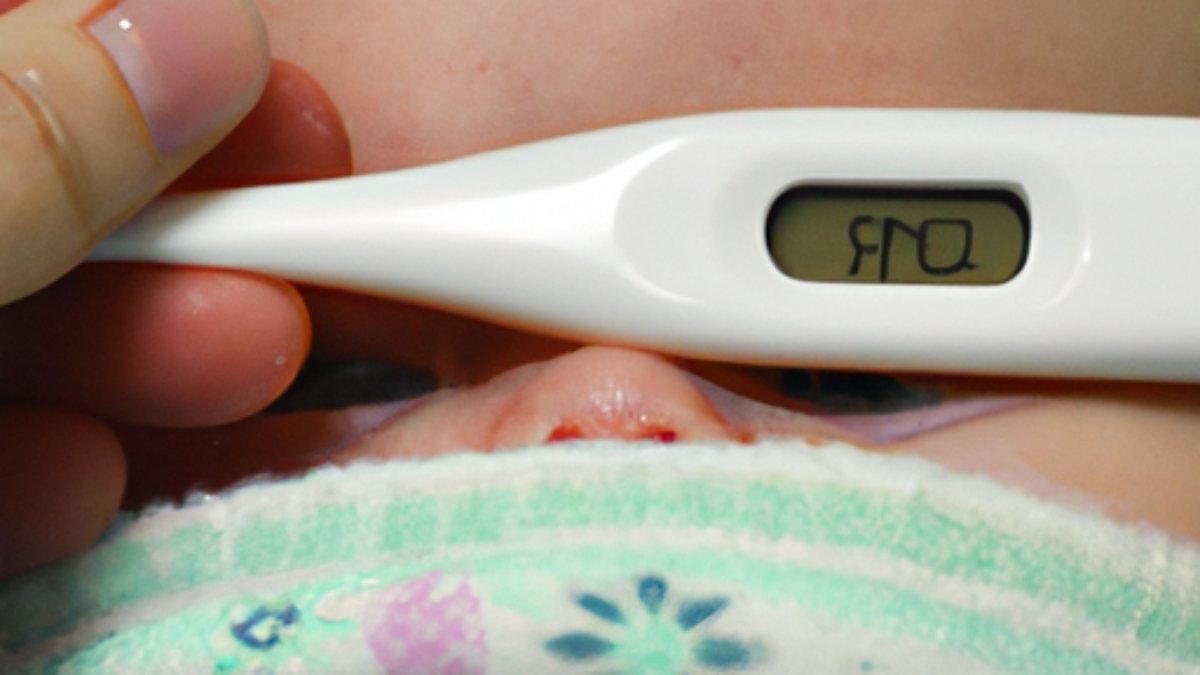In the realm of pediatric care, it is imperative for parents to be well-informed about various illnesses that can affect their children’s health. One such condition, Respiratory Syncytial Virus (RSV), poses a significant risk to infants and young children worldwide. Understanding the symptoms of RSV is crucial in ensuring prompt medical intervention, as this viral infection can lead to severe respiratory complications. This article aims to provide parents with a concise yet comprehensive overview of RSV symptoms, empowering them to recognize the signs and promptly seek appropriate medical care for their child.
Understanding RSV
Defining Respiratory Syncytial Virus (RSV)
Respiratory Syncytial Virus (RSV) is a common respiratory virus that affects people of all ages, but it is most dangerous in infants and young children. RSV is a contagious virus that primarily affects the respiratory system, leading to symptoms like cough, runny nose, and fever. In severe cases, it can also cause more serious complications such as pneumonia or bronchiolitis.
Prevalence of RSV
RSV is highly prevalent worldwide and is a leading cause of respiratory illness in infants and children. It is estimated that virtually all children will have been infected with RSV at least once by the time they reach their second birthday. RSV outbreaks are more common during the fall and winter months, although the virus can still be contracted at any time throughout the year.
Demographics most affected by RSV
While RSV can affect people of all ages, it is infants, particularly those younger than six months, who are at the highest risk of severe illness. Premature infants, children with underlying medical conditions, and older adults with weakened immune systems are also more susceptible to severe RSV infections. It is crucial for parents and caregivers to be aware of the symptoms of RSV to ensure early detection and proper treatment.
RSV Transmission Mechanism
How RSV spreads
RSV is primarily spread through respiratory droplets when an infected person coughs or sneezes. These droplets can then be inhaled by people in close proximity or deposited on surfaces, where they can survive for several hours. Additionally, RSV can be spread through direct contact with infected individuals or contaminated surfaces.
RSV Contagious Period
The contagious period for RSV typically lasts several days and can extend up to two weeks. Infected individuals may be contagious even before symptoms appear, making it challenging to prevent the spread of the virus. It is important to practice good hygiene, such as frequent handwashing and covering coughs and sneezes, to reduce the risk of transmission.
Factors Contributing to RSV Transmission
Several factors contribute to the transmission of RSV, including crowded living conditions, lack of proper ventilation, and close contact with infected individuals. The virus can easily spread in daycare centers, schools, and healthcare settings, making it important for proper infection control measures to be implemented to prevent outbreaks.
Early Symptoms of RSV
RSV in Infants and Toddlers
In infants and toddlers, RSV often presents with symptoms similar to the common cold. These can include a runny nose, nasal congestion, coughing, sneezing, and low-grade fever. It is essential for parents to closely monitor their child’s symptoms and seek medical attention if they worsen or if the child has difficulty breathing.
RSV in Older Children and Adults
In older children and adults, the symptoms of RSV may resemble a severe cold or flu. These can include cough, sore throat, body aches, headache, and fever. While the symptoms may not be as severe in this age group, it is still important to seek medical advice, especially if there are signs of respiratory distress.
Subtle signs of RSV infection that parents may overlook
Parents should also be aware of the subtle signs of RSV infection that may initially go unnoticed. These can include decreased appetite, irritability, sleep disturbances, and breathing difficulties. If any of these symptoms are observed in a child, particularly an infant, a healthcare professional should be consulted for further evaluation.
Severe Symptoms of RSV
Signs of Severe RSV in Infants
Severe RSV infection in infants can lead to more pronounced symptoms, such as rapid breathing, wheezing, retractions (pulling in of the chest muscles with each breath), and cyanosis (bluish discoloration of the lips or face). These signs indicate respiratory distress and require immediate medical attention.
Serious RSV Symptoms in Older Children
While severe RSV infections are more common in infants, older children can still develop serious symptoms. These can include persistent coughing, difficulty breathing, chest pain, high fever, and fatigue. It is important to promptly seek medical care if any of these symptoms are present.
Dangers of unchecked RSV symptoms
Unmanaged or untreated RSV symptoms can lead to severe complications, especially in infants and individuals with compromised immune systems. These complications can include pneumonia, bronchiolitis, ear infections, and in rare cases, respiratory failure. Early detection and appropriate treatment are crucial for minimizing the risk of these complications.
Long Term Effects of RSV
Potential respiratory complications
While most individuals recover fully from RSV without long-term effects, some may develop respiratory complications. These can include recurrent wheezing, asthma, and an increased risk of respiratory infections in the future. Close monitoring and appropriate follow-up care can help manage and minimize these potential long-term effects.
Impact on child’s growth development
Severe RSV infections in infants can temporarily affect their growth and development. The stress on the body during the illness, as well as potential hospitalizations, can disrupt normal feeding and sleeping patterns, leading to temporary growth delays. However, with proper medical care and support, most infants can catch up on their growth milestones.
Psychological effects of RSV
RSV can also have psychological effects on both children and their families. Hospitalizations and the fear of severe illness can cause emotional distress and anxiety. It is important for caregivers to seek emotional support and resources to cope with the impact of RSV on their psychological well-being.
Diagnosing RSV
The RSV Testing Process
To diagnose RSV, a healthcare professional may conduct a physical examination and ask about the symptoms and medical history of the patient. In some cases, a nasal or throat swab may be taken to test for the presence of the virus. Rapid antigen tests and molecular tests, such as polymerase chain reaction (PCR), are commonly used to detect RSV.
Interpreting RSV Test Results
Interpreting RSV test results requires expertise, as false negatives and false positives can occur. A negative result does not necessarily rule out RSV infection, especially if symptoms are consistent with the virus. On the other hand, a positive result confirms the presence of RSV, and appropriate treatment and precautions should be taken.
Differential Diagnosis of RSV
RSV can present with symptoms similar to other respiratory infections, making it important to consider other possible diagnoses. Differential diagnoses for RSV can include influenza, human metapneumovirus (hMPV), parainfluenza virus, adenovirus, and rhinovirus. Accurate diagnosis is crucial for appropriate treatment and infection control measures.
Treatment Options for RSV
At-home Care for Mild RSV
In mild cases of RSV, treatment primarily focuses on relieving symptoms and providing supportive care. This can include ensuring proper hydration, using a humidifier, providing fever-reducing medications under medical guidance, and using saline nasal drops to alleviate nasal congestion. Close monitoring and frequent medical follow-up may be necessary.
Medical Interventions for Severe RSV
Severe RSV infections may require hospitalization for proper management. Treatment options in the hospital setting can include the administration of supplemental oxygen, bronchodilators to open the airways, and supportive measures such as intravenous fluids and nutritional support. In severe cases, antiviral medications may be recommended.
Possible complications with treatments
While treatment interventions for RSV are generally safe and effective, there can be potential complications. Some individuals may experience adverse reactions to medications or treatments, and close monitoring is necessary to detect and manage any complications that may arise. Healthcare professionals will closely assess the risks and benefits of specific interventions for each patient.
Preventing RSV
Prophylactic measures against RSV
Prevention is crucial in reducing the risk of RSV, especially in high-risk individuals. Prophylactic measures can include frequent handwashing, avoiding close contact with sick individuals, practicing proper respiratory hygiene, and ensuring a clean and hygienic environment. These measures are particularly important in daycare centers, schools, and healthcare settings.
The role of Vaccines in RSV Prevention
As of now, there is no licensed vaccine available for RSV prevention. However, ongoing research and development of RSV vaccines show promising results. Vaccination against other respiratory illnesses, such as influenza and pertussis, can also indirectly help prevent RSV by reducing the likelihood of co-infections.
Creating a safe environment for RSV-prone children
Creating a safe environment is essential for protecting RSV-prone children. This can involve implementing infection control measures, such as regular cleaning and disinfection of surfaces, ensuring proper ventilation, and minimizing exposure to crowded places during peak RSV seasons. Parents and caregivers should also promote healthy habits, such as breastfeeding and maintaining good overall hygiene.
RSV and COVID-19
Similarities and Differences between RSV and COVID-19
RSV and COVID-19 are both respiratory infections but caused by different viruses. While they share some similar symptoms, such as cough and fever, there are notable differences in transmission, severity, and impact on different age groups. COVID-19 has emerged as a global pandemic, whereas RSV has been a long-standing respiratory virus.
Co-infection of RSV and COVID-19
Co-infection with RSV and COVID-19 is possible, especially during the overlapping seasons of both viruses. The co-infection can lead to more severe illness and complications, emphasizing the need for appropriate preventive measures, including mask-wearing, social distancing, and vaccination against COVID-19.
Managing RSV in COVID-19 times
The management of RSV in the context of COVID-19 requires careful consideration of infection control measures and appropriate medical interventions. Healthcare professionals must be vigilant in screening for both viruses and follow established guidelines for testing, treatment, and isolation protocols to minimize the spread of RSV in healthcare settings and the community.
Navigating Life with RSV
Coping with RSV as a Parent
Coping with RSV as a parent can be challenging, especially when dealing with a severely ill child. It is important for parents to prioritize self-care, seek emotional support, and rely on their healthcare team for guidance. Educating oneself about RSV, adhering to the prescribed treatment plan, and maintaining open communication with healthcare professionals can help navigate this difficult journey.
Impact of RSV on Family Life
RSV can have significant impacts on family life, especially if there are multiple affected family members or if a child requires hospitalization. The stress of managing the illness, the financial burden of medical expenses, and the disruption of daily routines can place strain on family dynamics. Open communication, support from loved ones, and accessing appropriate resources can help families cope during this challenging time.
Support Resources for Parents dealing with RSV
Parents dealing with RSV can benefit from accessing support resources and organizations dedicated to respiratory infections. These resources can provide educational materials, online communities for peer support, and guidance on managing the emotional and practical aspects of caring for a child with RSV. Healthcare professionals can also provide information about local support services available in the community.
In conclusion, understanding RSV is crucial for parents, caregivers, and healthcare professionals to effectively navigate the prevention, diagnosis, and treatment of this common respiratory virus. By recognizing the early and severe symptoms, being aware of the long-term effects, and implementing appropriate preventive measures, the impact of RSV can be minimized for individuals and their families. With ongoing research and advancements in medical interventions, the management and prevention of RSV continue to evolve, offering hope for a healthier future.

